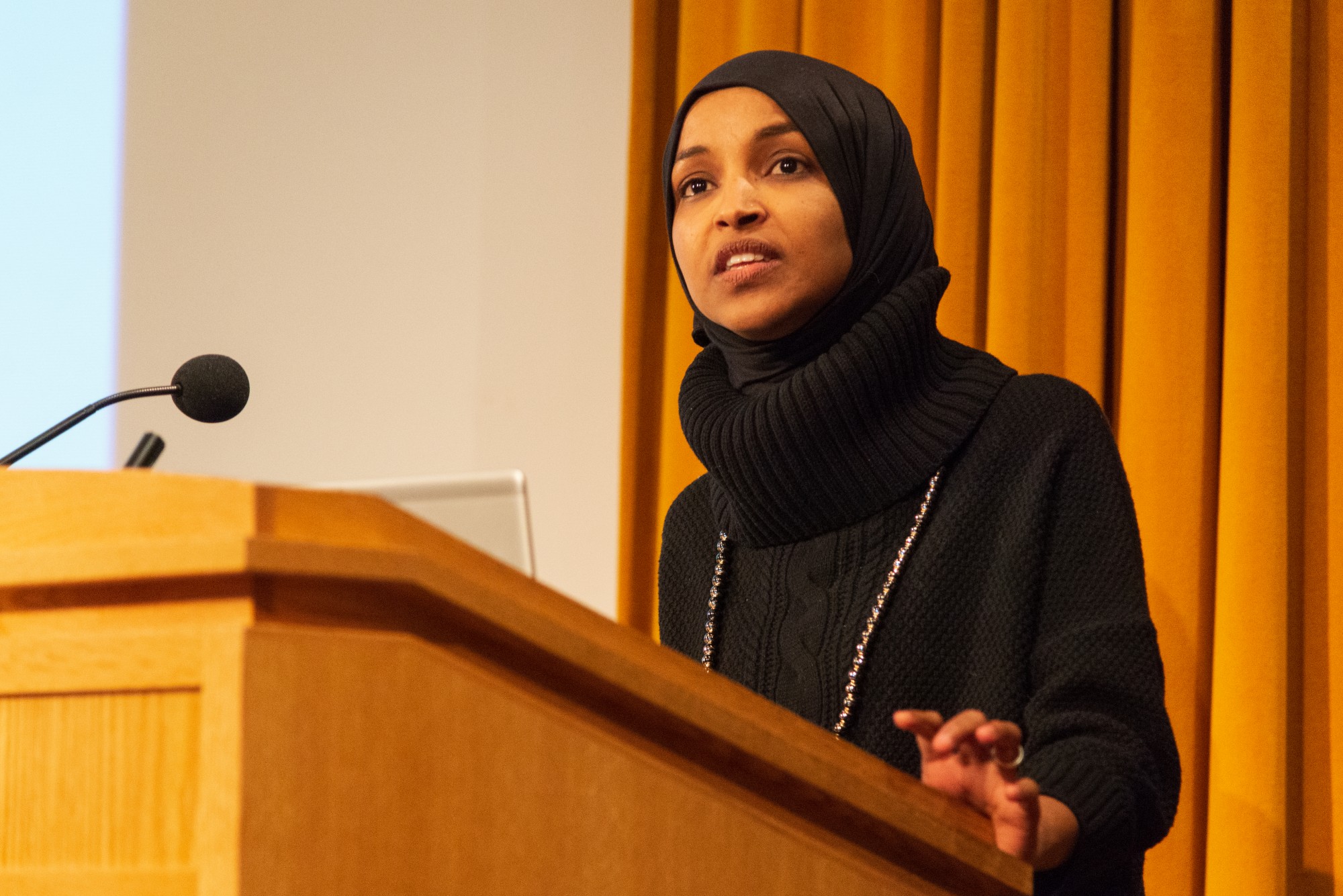U.S. Representative Ilhan Omar stopped at the University of Minnesota on Tuesday to make the case for her plan to reshape the nation’s foreign policy to “one that centers on human rights” after unveiling it a week before.
Dozens of students, constituents and supporters gathered at the Humphrey School of Public Affairs to hear Omar’s ‘Pathway to Peace’ plan. She outlined seven pieces of legislation calling for, among other issues, the promotion of an international youth program for disadvantaged children, a global migration framework, and the ending of arms sales to human rights abusers.
“This approach allows us to be able to set the standard for how we will engage with the world,” Omar said at the event. “I believe it will put the world on notice, on what the United States will accept and what it will not.”
Omar cited her unique experience as a war refugee, which she said lends credibility to her position in the overall U.S. foreign policy debate.
“As someone who lived through the ravages of war as a young person, I understand what the cost of war is, and why it’s important for us to be fighting for peace and a just world,” Omar said in an interview. “And so that’s why I feel like if not me, who?”
Three human rights experts at the event discussed Omar’s progressive vision for foreign policy. The panelists included Peter Dross, external relations director at the Center for Victims of Torture; Barbara Frey, director of the Human Rights Program at the University’s Institute for Global Studies; and María Méndez Gutierrez, a Ph.D. candidate in the political science department.
Frey said that the nation’s position on foreign policy can have a ripple effect on other governments around the world.
“If we don’t take the human-centered approach, then when it comes to us on the global sphere, other people are going to think, ‘Well, we don’t have to abide by those standards anymore, because the United States doesn’t abide by those standards,’” Frey said at the event.
Méndez Gutierrez, a graduate student from Honduras, said students need to think about how foreign policy impacts the decision of immigrants to come to the United States.
“We need to understand how linked issues happening in the domestic space of the United States are very much connected to what’s happening outside,” Méndez Gutierrez said. “So there’s no way of thinking inside without thinking outside.”
Omar said that her position as a congresswoman has given her the opportunity to put a progressive plan for foreign policy into action.
“We’re no longer going to talk in platitudes,” Omar said. “Instead of constantly asking what could a progressive foreign policy look like, we can now say this is what it is.”
“Correction: a previous version of this story stated that María Méndez Gutierrez is a Honduran immigrant. She is not a Honduran immigrant.”












